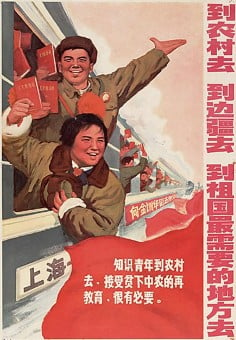Book review: The Lost Generation, by Michel Bonnin
This book is about one of the most extraordinary experiments in human history: Mao Zedong's decision to send 17 million young Chinese from the cities to the countryside during the Cultural Revolution.

by Michel Bonnin
Chinese University of Hong Kong Press
5 stars
Mark O'Neill
This book is about one of the most extraordinary experiments in human history: Mao Zedong's decision to send 17 million young Chinese from the cities to the countryside during the Cultural Revolution.
They stayed an average of six years and as long as 11 years; most believed they would remain there for good. It scarred them for the rest of their lives, deprived the vast majority of a university education, and disrupted their family life and professional and marriage plans. They gave up many of the best years of their life - and for what purpose?

Mao's decision was based on political and ideological reasons: he wanted to disperse the Red Guards from the cities and prolong the revolution by launching a new movement to prevent society from stabilising. He also detested intellectuals, seeing them as a social class that had an independent spirit.
The departures began in 1968: in September, 144,000 out of 176,000 graduates from three graduate years left from Shenyang within 10 days. The train system was overloaded carrying all the young people.
Although the move was "voluntary", it amounted to deportation. All those who could, avoided it. "All means were used, including violence and corruption, to get into those bodies headed by the worker and army propaganda teams" as a way to avoid going; the bodies were responsible for organising others to leave.